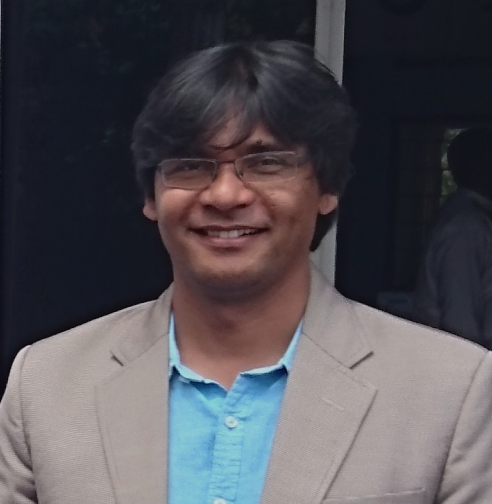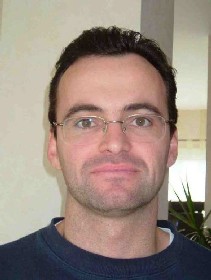Keynotes
IoT and data analytic for developing countries from research to business transformation
Abdur Rahim, CREATE-NET Research Center, Fondazione Bruno Kessler (FBK)
The Internet of Things (IoTs) and data analytic is not just the story for the developed economic countries, but it is rather equality importance for developing nations like Africa, Asia. The IoT has the tremendous opportunity for the human and economical development. Together with IoT and and data are driving improvements to human economic conditions and wellbeing in healthcare, water, agriculture, natural resource management, resiliency to climate change and energy. The current IoT solutions developed by Industrial countries are either too generic or focusing only on industrial market needs. For the developing countries, there is a need for specialized solutions which addresses fundamental problems like internet and network connectivity, cost of solutions, power requirements, simplicity in terms of deployment and operation, robustness from environment threat, and user-centric design for notification (SMSs, voice, WhatsApp and Facebook) and interaction. This talk will provide the Iot and data analytic movement prospective for the developing countries including the opportunity that offers to developing nations with a specific challenge. The talk also outlines the needs to exploit IoT potential and share IoT Technologies best-practices through the involvement of innovation communities and stakeholder (startup, developer, innovation Hub) from local district, regional, national and international-level.
 |
Biography: Dr.-Ing. Abdur Rahim received his PhD Degree in Electrical and Electronics from Technical University Dresden, Germany (2009). Current, he is the project coordinator of H2020 WAZIUP, Open IoT and Big data platform for Africa (www.waziup.io). He was the project manager of iCore (http://www.iot-icore.eu/), empowering IoT through cognitive technologies and technical manager of iKaaS (http://ikaas.com/), EU-Japan cooperation project. He is also the technical group leader of the OpenIoT research unit in FBK. In addition, He is/was involved in many activities related to IOT and cognitive technologies, like steering committee (CROWNCOM), leader of IERC AC8, Co-chair of SelfIoT, the management committee of COST-TERRA/COST IC0902. He has a wide technology background in the telecommunication and IoT domains. He is also the co-founder of ZIGPOS GmbH, a highly innovative company developed indoor localization technology. His current research focuses on Open Source IoT platforms, LoRa and edge-cloud for flexible infrastructures. He has more than 50 co-authored publications in international journals, conferences, and workshops. |
Network Neutrality: Modeling and Challenges and its Impact on Clouds
Bruno Tuffin, INRIA Rennes Bretagne Atlantique
Network neutrality has been a very sensitive topic of discussion all over the world. During this talk, we will first introduce the elements of the debate and introduce how the problem can be modeled and analyzed through game theory. With an Internet ecosystem much more complex now than the simple delivery chain Content-ISP-User, we will in second step highlight how neutrality principles can be bypassed in various ways without violating the rules currently evoked in the debate, for example via CDNs, or via search engines which can affect the visibility and accessibility of content. We will describe some other grey zones requiring to be dealt with and spend some time on discussing the (potential) implications for clouds.
 |
Biography: Bruno Tuffin received the Ph.D. degree in applied mathematics from the University of Rennes 1, France, in 1997. Since then, he has been with INRIA, Rennes. He has authored or co-authored three books entitled Rare Event Simulation Using Monte Carlo Methods (Wiley, 2009), La simulation de Monte Carlo (in French) (Hermes Editions, 2010), and Telecommunication Network Economics: From Theory to Applications (Cambridge University Press, 2014). His research interests are twofold: the development Monte Carlo simulation techniques and quasi-Monte Carlo simulation techniques for the performance evaluation of telecommunication systems, and network economics analysis. He is currently a Simulation Area Editor for INFORMS Journal on Computing and an Associate Editor for ACM Transactions on Modeling and Computer Simulation.
More information available on his web page: http://www.irisa.fr/dionysos/pages_perso/tuffin/Tuffin_en.htm |